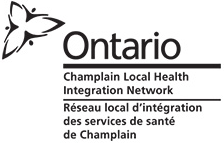
Introduction
We all get thoughts in our heads and urges to do things. For example:
- You might get an itch inside your nose, and feel like you want to pick it, but you know that if you're talking with your boss, you have to suppress it.
- You might see someone really smelly, but you keep that thought to yourself.
- Someone is rude to you, and you feel like swearing at them, but you don't actually say anything.
Most of us are lucky because we have "brakes" that keep us acting out every single thought that we have.
But imagine what it would be like if you had ‘leaky brakes' (in the words of Dr. Duncan McKinlay), and your body acted out every thought that you had? Worse, what would it be like if others pointed out your tics and laughed at you?
That's what life can be like for people with tics or Tourette syndrome...
What are Tics?
Tics are:
- Repeated, sudden movements or sounds that a person makes, and can happen in the face (e.g. twitching in the face) or body (e.g. jerking of the hands, arms, or legs.)
- Involuntary, meaning that the person is not purposely doing them. In many cases, the person may not even be aware that they are doing it.
What Causes Tics?
Basically, part of the brain responsible for controlling the person's muscles is ‘auto-pilot' and doing things on its own, like what happens when you have an cough or a sneeze.
Tics can be controlled for a short periods of time, but it requires a lot of brain power and mental effort to do so. And then later on, usually those ‘pent up' tics get released later on.
Common examples would include a child who controls their tics in class, but then releases it at recess, or an adult who controls tics during their workday, and then releases it after going home.
What Types of Tics are there?
Tics can be classified in a few ways, as being motor or vocal, as well as being simple and complex.
1. Motor tics are movements in the head, arms, legs or other parts of the body.
- Simple motor tics are involuntary, rapid sudden movements, and look like a 'muscle spasm.' Examples include:
- Eye blinking,
- Facial grimacing,
- Head bobbing,
- Shoulder shrugging.
- Complex motor tics use more than one muscle group, and may appear like the person is doing them on purpose. Examples include:
- Echopraxia: Copying moements movements made by others;
- Copropraxia: Performing obscene or forbidden gestures;
- Kicking, skipping, jumping, smelling objects.
2. Vocal tics are where the person makes noises.
- Simple vocal tics involve a single muscle group. Examples include:
- Grunting,
- Snorting,
- Coughing,
- Sniffing.
- Complex vocal tics involve more than one muscle group, and can seem like the person is doing it on purpose. Examples include:
- Barking, whistling
- Coprolalia: Swearing, or may even make racist, sexist remarks, that can be extremely offensive if others do not understand.
- Echolalia: Repeating sounds, words or phrases that the person hears from others.
- Palilalia: Repeating one's own sounds or words.
What Causes Tics?
Though in the past people with tics may have been blamed for having their tics, it is nowadays understood that these individuals have a genetic difference which causes imbalances in certain brain chemicals.
In some cases, this genetic difference is passed on from parents, whereas in others it seems to arise on its own.
Tic Disorders and Tourette Syndrome
How Common are Tics and Tourette Syndrome?
As many as 10-20% of all school-age children have motor and/or vocal tics that go away within a year (Bagheri et al., 1999).
In 3-4% of school age children, symptoms of either motor or vocal tics will last more than a year (Leckman et al., 2001). These children would be considered to have a chronic tic disorder. Children with both vocal and motor tics that persist for more than 1 year generally meet criteria for Tourette syndrome.
If You Suspect Tics or Tourette Syndome
If you suspect that your child has tics or Tourette's, then take your child to a family doctor or paediatrician. The doctor can do a closer examination, and then recommend other services if necessary.
Although in the past it was believed that Tourette Syndrome was lifelong, newer evidence suggests that the symptoms are worst around at age 10-12, and that symptoms improve over adolescence (Leckman et al., Pediatrics, 1998).
Other Conditions Seen Along with Tics and Tourette Syndrome
Patients with Tourette's syndrome may have other conditions as well, and it is often these other conditions that cause the main challenges than simply the tics, such as:
| Obsessive compulsion disorder (OCD) |
Condition where individuals have obsessions (distressing, repetitive thoughts or images, e.g. fears of germs) and/or compulsions (repetitive habits or rituals that a person feels compelled to do repeatedly, e.g. handwashing.) |
| Attention deficit hyperactivity disorder (ADHD) |
Problem with inattention and hyperactivity to the point where it causes problems in life. |
|
Problems with anger or rage |
Problems with anger causing problems in life. |
| Mental rigidity, |
Problems getting stuck on certain ideas or activities, to the point where it causes problems, e.g. arguments with others. |
| Learning disorders |
Problems with learning in a specific area, such as reading, mathematics. |
| Anxiety problems |
Worries that are so severe that it causes problems with life. |
Supporting Someone with Tics and Tourette Syndrome
There are many ways you can help someone with tics and Tourette's.
- Do accept that they have a tic disorder, and help others understand them as well. Just like we'd accept someone who has other brain differences such a seizure disorder, it is important to accept them and support them. Unfortunately, people with tics are often misunderstood, teased or rejected because others do not understand. Educate family members and teachers about the child's tics so that they offer support to the child. Consider asking your health professionals, or contact Tourette's associations for more information about how to educate others.
- Do not blame. Although many children with tics can suppress them (such as during school hours), the urge to tic is still there, and often must eventually be released. However, because a child is often tic-free for long periods, often adults mistakenly believe that it is just simply a matter of willpower, and will thus use discipline or punishment to prevent tics. This approach to tics is not effective, just as you wouldn't discipline or punish a child who has seizures.
Treatment for Tics
Mild tics that do not cause severe difficulties or get in the way of life are usually not treated.
Moderate to severe tics however, that cause problems at home, work or school, may be treated with behavioural therapies or medications
1. Behavioural Therapy (BT) for Tics
There are different behavioural therapies that may be helpful.
For example, "habit reversal" shows some promise for mild, non-severe tics. Habit reversal involves training oneself to replace the problematic tic behavior with a different, less impairing behavior.
The person with tics is taught how to:
- Identify warning signals, or feelings that come before getting a tic (premonitory feelings).
- E.g. If the child has a tic that makes him/her tilt the head to the left, the child is taught to tilt the head to the right.
- Once the person is aware of the tic, then the person is taught actions to cancel out the tic.
Advantages / Disadvantages of Behavioural Therapy
Behavioural therapies do not have side effects, unlike medications. However, it can be challenging to do if one's symptoms are severe, particularly with younger children.
2. Medications for Tics include:
- Alpha adrenergic agonists, e.g. clonidine (Catapres), guanfacine (Intuniv)
- Dopamine blocking medications, e.g. Risperidone (Risperdal), Olanzapine (Zyprexa), Aripiprazole (Abilify)
Advantages / Disadvantages of Medications: Medications can be helpful for more severe cases especially if other strategies (such as behaviour strategies) haven't worked.
If the person with tics has other conditions such as ADHD/ADD (attention deficit hyperactivity disorder / attention deficit disorder), anxiety conditions such as obsessive compulsive disorder (OCD), and rage attacks, then treatments (such as medications) may be helpful for those conditions as well.
Where to Find Help?
See your family physician / pediatrician to explore whether it is tics or Tourettes, and to see whether or not it would be helpful to get a referral to other specialists such as neurologists or psychiatrists.
For behavioural therapies, usually it is provided by psychologists. To find a practitioner, consider http://www.canadianbfrb.org/canadian-treatment-providers/
For More Information
Budman CL, Bruun RD: Tourette Syndrome and Repeated Anger Generated Episodes, Information handout from the Tourette Syndrome Association, http://tsa-usa.org
Life's a Twitch is a website founded by Dr. Duncan McKinlay, a psychologist who himself has Tourette's. Web: http://www.lifesatwitch.com
Wilhelm, Deckersbach, Coffey et al.: Habit reversal versus supportive psychotherapy for Tourette's Disorder: Am J. Psych 2003; 160: 1175-1177.
Woods & Piacentini et al., 2004
About this Document
Written by the eMentalHealth Team.
Disclaimer
Information in this pamphlet is offered ‘as is' and is meant only to provide general information that supplements, but does not replace the information from your health provider. Always contact a qualified health professional for further information in your specific situation or circumstance.
Creative Commons License
You are free to copy and distribute this material in its entirety as long as 1) this material is not used in any way that suggests we endorse you or your use of the material, 2) this material is not used for commercial purposes (non-commercial), 3) this material is not altered in any way (no derivative works). View full license at http://creativecommons.org/licenses/by-nc-nd/2.5/ca/







